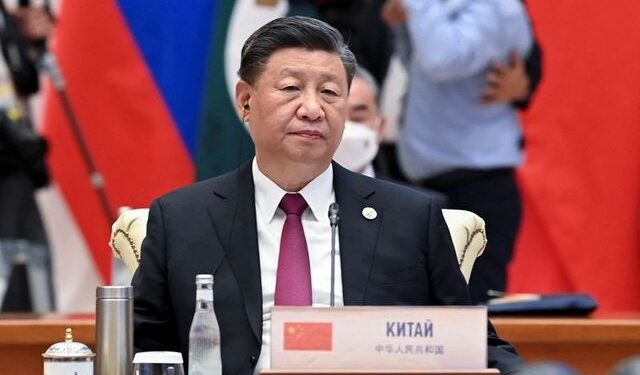Samarkand: Chinese President Xi Jinping warned Friday his Central Asian neighbours not to allow outsiders to destabilise them with ‘colour revolutions’. Xi Jinping also offered to set up a regional counter-terrorism training centre.
Xi’s comments at a security summit with Russian President Vladimir Putin and leaders from Central Asia, India and Iran reflect official Chinese anxiety that Western support for pro-democracy and human rights activists is a plot to undermine the ruling Communist Party and other authoritarian governments.
“We should prevent external forces from instigating a colour revolution,” Xi said in a speech to leaders of the Shanghai Cooperation Organization (SCO). He was referring to protests that toppled unpopular regimes in the former Soviet Union and the Middle East.
Xi offered to train 2,000 police officers, to set up a regional counter-terrorism training centre and to ‘strengthen law enforcement capacity building’. However, XI did not give any details.
The SCO was formed by Russia and China as a counterweight to US influence. The summit is part of Xi’s first trip abroad since shortly after the coronavirus pandemic began 2 1/2 years ago. The group also includes Kazakhstan, Kyrgyzstan, Pakistan, Tajikistan and Uzbekistan. Iran is an observer and has applied for full membership.
The one-day summit in the ancient city here occurred against the backdrop of Russia’s attack on Ukraine and fighting between Azerbaijan and Armenia.
President Recep Tayyip Erdogan of Turkey, a ‘dialogue partner’ of the group, attended the summit. He planned to hold talks with Putin on the status of a deal under which wheat exports from Ukraine through the Black Sea resumed.
Xi is promoting a ‘Global Security Initiative’ announced in April following the formation of the QUAD by the US, Japan, Australia and India in response to Beijing’s more assertive foreign policy. Xi has given few details, but US officials complain it echoes Russian arguments in support of Moscow’s actions in Ukraine.
China’s relations with Washington, Europe, Japan and India have been strained by disputes about technology, security, human rights and territory.
Central Asia is part of China’s multibillion-dollar Belt and Road Initiative to expand trade by building ports, railways and other infrastructure across an arc of dozens of countries from the South Pacific through Asia to the Middle East, Europe and Africa.







































